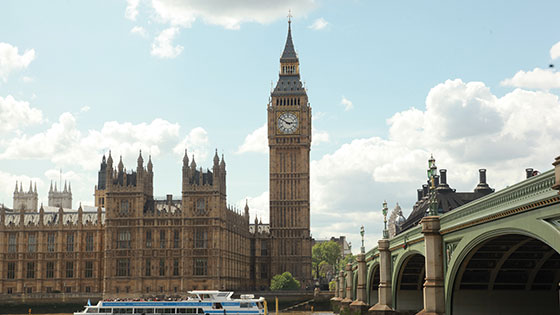Moving to a new country is an exciting time. It’s very important that you are aware of how you will access healthcare services when you arrive so that you can be supported if you do become unwell at any point.
Knowing which healthcare service to use when can help in an emergency and ensure you're seen by the right people as soon as possible.
You can download the NHS App too; a simple and secure way to access a range of NHS services on your smartphone or tablet and check your symptoms.
Pharmacists can help you with minor health concerns. They work in the community in pharmacies and can provide you with advice on mild conditions and any prescription medications.
If you need advice and over-the-counter treatments for minor ailments such as:
Visiting a pharmacist, saves a visist to the GP and can be quicker for you to get seen and treated. There is no need for an appointment. Open Monday to Friday but check with specific Pharmacy website.
A GP is a doctor who is based in the community. They will be able to treat you if you have a minor physical or mental health illness, or chronic (long term) illness. If they cannot treat you they will refer you to a specialist.
Your GP should be your first point of contact for health issues that you cannot treat yourself with the help of the local pharmacy or via information on NHS.uk
Open Monday to Friday but check with specific GP practice website..

If you need need medical help fast but it's not a 999 emergency. For example:
Open 24/7 all year round. This service is also available online through NHS111.
An Accident and Emergency department (A&E) deals wigh life-threatening emergencies. They are not an alternative to visiting your GP
Open 24/7 all year round
If you are in an immediate and life-threatening emergency and you cannot get to A&E yourself (if it's a medical emergency).
Open 24/7 all year round
Any MDX student living in London can register with The Uni Doctor. You can register with The Uni Doctor before arriving in the UK
 Planning for your move to the UK is important.
Planning for your move to the UK is important.
There are a lot of changes to go through and in this type of situation, you might find yourself paying less attention than usual to your health. Existing health problems can also be made worse by the effects of adjusting to unfamiliar food, a different climate and the emotional strains of being away from home.
It can be easy to concentrate on your studies and forget about taking care of yourself. For that reason, it's best to prepare well before you travel and ensure that you have organised as much as possible before you leave.
Find out which vaccinations you need before coming to the UK and if you are not sure if you have had these, speak to your healthcare provider. If you have any evidence of your vaccinations, like an International Vaccination Book, bring it with you.
If you have a long-term health condition, or you are undergoing any kind of treatment, speak to your healthcare provider about how you will receive treatment and medicines once you are in the UK, and if you will need any additional health insurance. Your doctor may provide you with a supply of your medication if it's hard to get hold of in the UK. It would be useful to get a copy of your medical notes and medicine list (with translation, if applicable) to show to your new GP in the UK.
If you apply for your visa from overseas and it is granted for less than six months or you are required to make a number of occasional visits to the UK for short study periods, we strongly advise you take out medical insurance as you will be liable for NHS charges for any treatment you receive in the UK (except for medical emergencies, however this is limited).
You will also need to pay for any medicines prescribed by a doctor. The UKCISA website has more information about eligibility and medical costs.
Certain countries have a reciprocal agreement with the UK which may entitle you to some free healthcare on the NHS but you should seek advice from the health authorities in your home country about what treatment will be covered.
EEA nationals should obtain a European Health Insurance Card (EHIC), but this may not be valid in the UK after 31 December 2020.
If you are applying for a student visa and coming to the UK for 6 months or longer, you will be required to pay the immigration health surcharge. This costs £470 and is in addition to the visa application fee.
The immigration health surcharge will entitle you to access NHS healthcare at no additional cost in the same way as a permanent UK resident. This includes at the GP or in a hospital. You may need to pay for dental and optical treatment as well as medicine prescribed by the doctor and collected from a pharmacy.
If your application includes part of a year that is less than six months, you'll only pay half the charge (£235) for that year. Family members applying for a dependant visa will also be required to pay the surcharge.
If you're applying for entry clearance from overseas, the surcharge will apply to visas granted for more than 6 months. If you're applying for further permission to stay in the UK, you will pay the surcharge regardless of the new visa length.
If your visa application is not successful, you will automatically be refunded the immigration health surcharge (but not the visa application fee). The surcharge will not be partially refunded if you depart the UK earlier than the expiry of your visa.
The surcharge is also not refunded if you do not use the NHS during your time in the UK.
You may be entitled to a full or partial refund of your immigration health surcharge payment if you’re a full-time student in higher education and have an EHIC issued by an EU country. You can find more information about EHICs online.
You will not be eligible for a refund if you work in the UK while studying.
You won’t be able to apply for a refund until 1 January 2022. However, your refund will be backdated to include any immigration health surcharge payments made since 1 January 2021.
If you intend to apply for a refund of your immigration health surcharge payment, you should use your EU EHIC for medically necessary treatment during your studies.
Health and social care students
You may be eligible for a full refund (and a refund for dependents, if applicable) if you work in the NHS or qualifying social care sector and have done for an average of more than 16 hours per week for at least 6 months since March 2019.
If your course is 6 months or shorter in length, you need to take out private medical insurance. The UKCISA website has more information about eligibility and medical costs.
If your course is 6 months or longer, you cannot take out private healthcare insurance as an alternative to paying the health immigration surcharge as this is a mandatory fee included as part of your visa application.
However, you may decide that you wish to also have private healthcare insurance in place. You may wish to consider this to cover the following potential health-related costs:
There is often a long wait for NHS treatment, sometimes many months. An insurance policy which gives you access to private medical care could give you much quicker access to the treatment you need.
If you already have medical insurance in your home country, check whether you can extend it to cover your stay in the UK, as well as looking at options available from UK insurers.
You should take out medical insurance to cover the duration of your visit or stay.
If you have an EHIC, it will be valid until the expiry date on the card. Once it expires, you’ll need to apply for a UK Global Health Insurance Card (GHIC) to replace it. This lets you get state healthcare in Europe at a reduced cost or sometimes for free.
GHIC and EHIC do not replace travel insurance. You can use a GHIC or an EHIC if you’re travelling to an EU country.
You cannot use a GHIC or an existing EHIC in Norway, Iceland, Liechtenstein or Switzerland. You’ll need travel insurance with healthcare cover.
If you are unsure about anything on this page, please contact the UK Council for International Student Affairs (UKCISA).
Our International Student Advice Team at MDX can also help support you if you have any queries or issues.